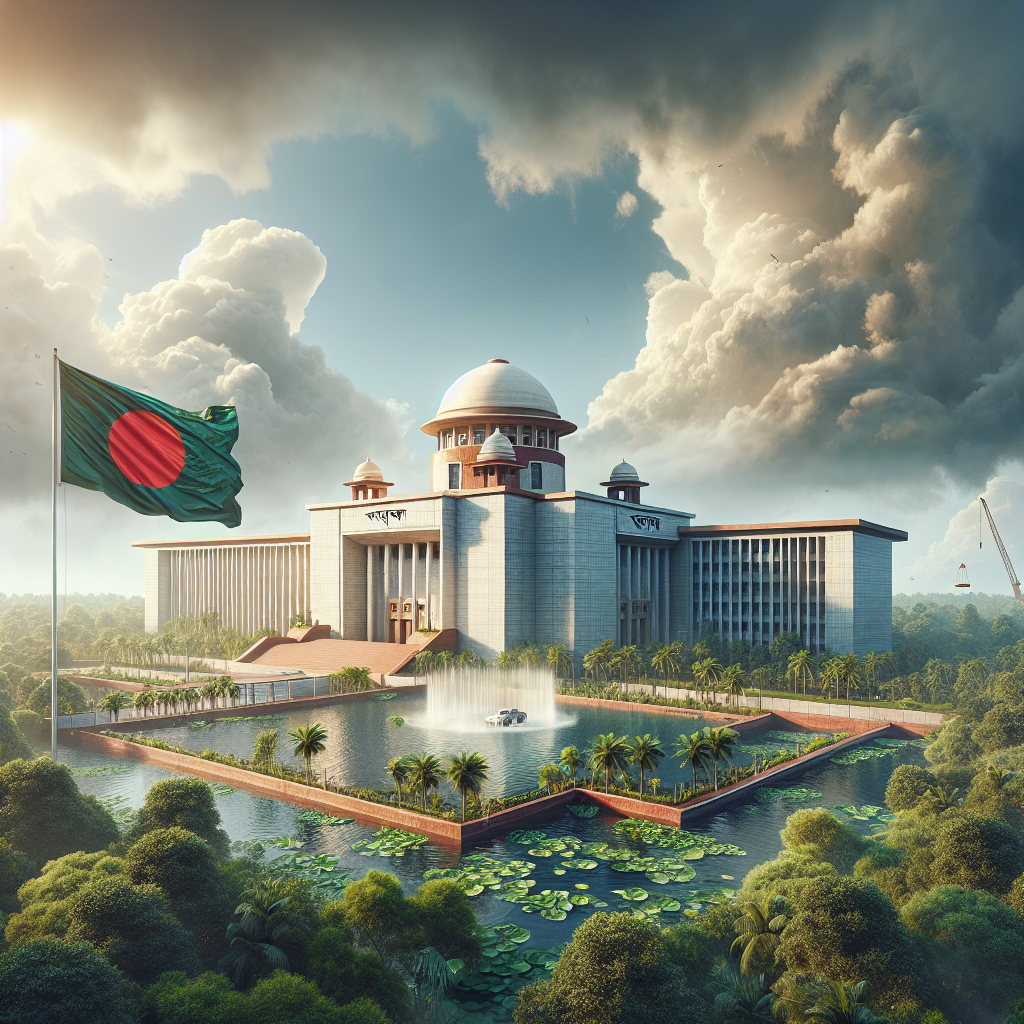
“`html
Bangladesh Attorney General Advocates Major Constitutional Revisions
Introduction
The Attorney General of Bangladesh, Mohammad Asazzaman, has made a significant proposal to alter the nation’s constitution. Appearing at a High Court hearing, Asazzaman has put forth the controversial suggestion to remove “secularism” and “socialism” from the state’s guiding principles. This bold move is part of a broader initiative to challenge the 15th constitutional amendment, which was enacted by the prior Awami League government.
Background of the Proposed Changes
The 15th amendment to the constitution of Bangladesh was implemented in 2011 under the Awami League government. Key changes included:
- The restoration of secularism as a state principle.
- The designation of Sheikh Mujibur Rahman as the Father of the Nation.
- The removal of the caretaker government system for overseeing elections.
The Attorney General’s proposal hopes to overturn many of these changes, a move that could reshape Bangladesh’s political and ideological landscape.
The Push Against Secularism and Socialism
Asazzaman’s call to remove secularism and socialism reflects a notable shift in the political ideology fronting the interim government. He argues that these principles may not align with the current needs and sentiments expressed by the populace, especially considering the recent protests that led to the government’s change.
Aim to Reinstate the Caretaker Government System
A key aspect of Asazzaman’s proposal is the restoration of the caretaker government system. This system, which was scrapped by the Awami League regime, previously provided impartiality and integrity in election oversight. The interim government believes reinstating it could foster greater democratic engagement and fairness.
The Debate on Recent Political Movements
The current political environment in Bangladesh is highly charged. The proposal emerges in a context where a mass uprising fueled by the Anti-Discrimination Students Movement led to the fall of the Awami League government. This upheaval reflects broader public dissatisfaction and a desire for democratization that the Attorney General claims are hindered by the 15th amendment’s current stance on regime change.
Legal and Political Implications
In his address to the court, Asazzaman also highlighted the need to repeal the amendment that criminalized unconstitutional regime changes. This law currently carries a severe penalty, including the death sentence. Asazzaman suggests that this provision suppresses legitimate political dissent and hinders democratic reforms.
Expected Reactions and Impacts
The proposal by Bangladesh’s Attorney General is expected to incite significant debate across the nation. The revisions touch integral aspects of Bangladesh’s identity, governance, and its unique brand of democracy. Public opinion is likely to be divided, with some favoring a return to principles favoring traditionalism, while others may advocate for maintaining secular ideals.
The Role of Sheikh Mujibur Rahman
Another contentious point in the proposal involves the designation of Sheikh Mujibur Rahman as the Father of the Nation. While this is a status held dearly by many, the current government appears intent on reevaluating its representation in the constitution, reflecting a shift towards a more collective ideological identity.
Conclusion
Whether these proposals by Attorney General Mohammad Asazzaman will transform into legislative reality remains to be seen. However, what is clear is that Bangladesh is at a crossroads, with its political identity and constitutional principles under robust scrutiny. The unfolding debates will reflect the country’s journey towards self-determination and democratic integrity.
With inputs from agencies
“`
Sources: https://timesofindia.indiatimes.com/world/south-asia/bangladesh-attorney-general-proposes-removing-secularism-and-socialism-from-constitution/articleshow/115305800.cms

